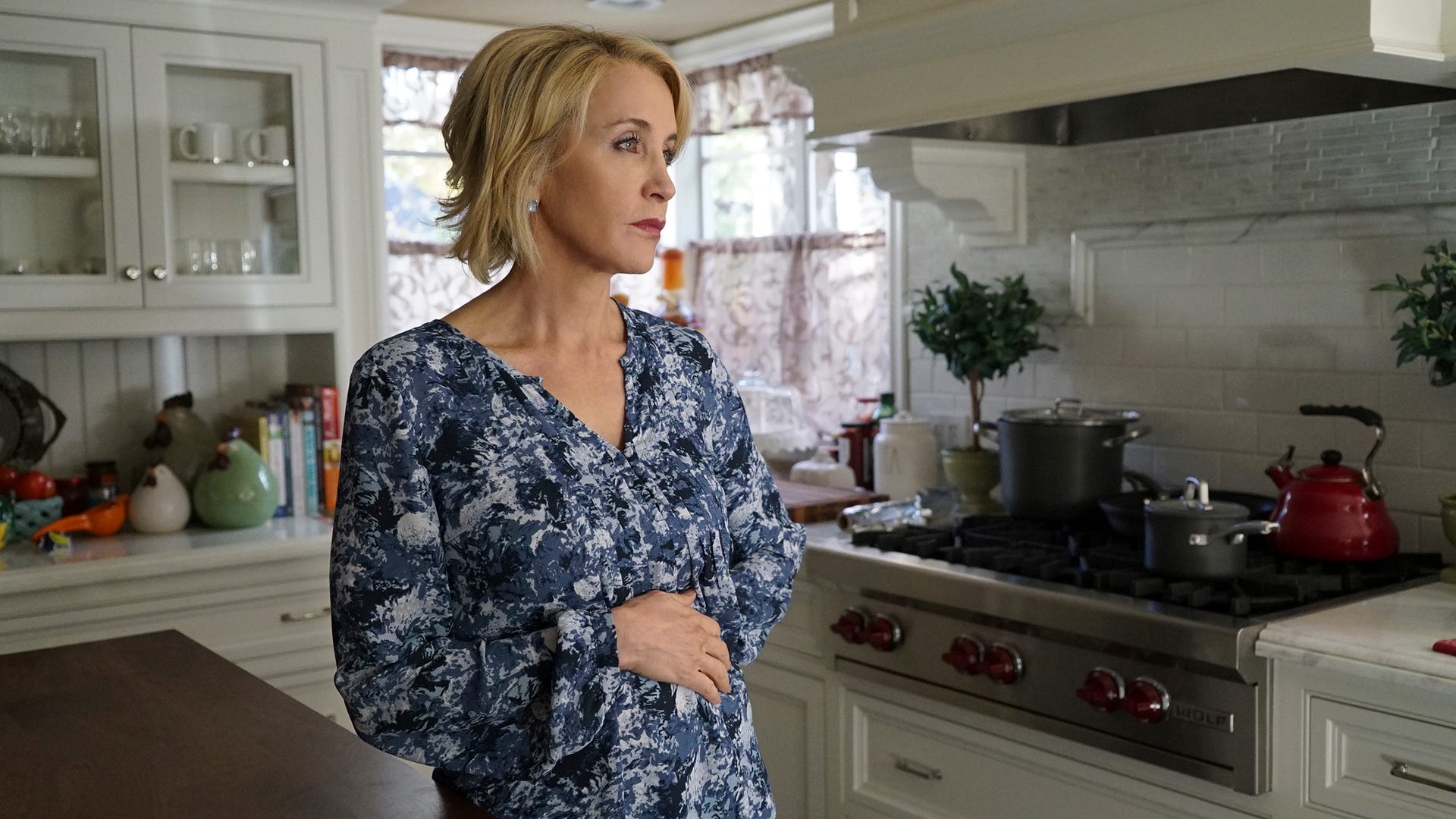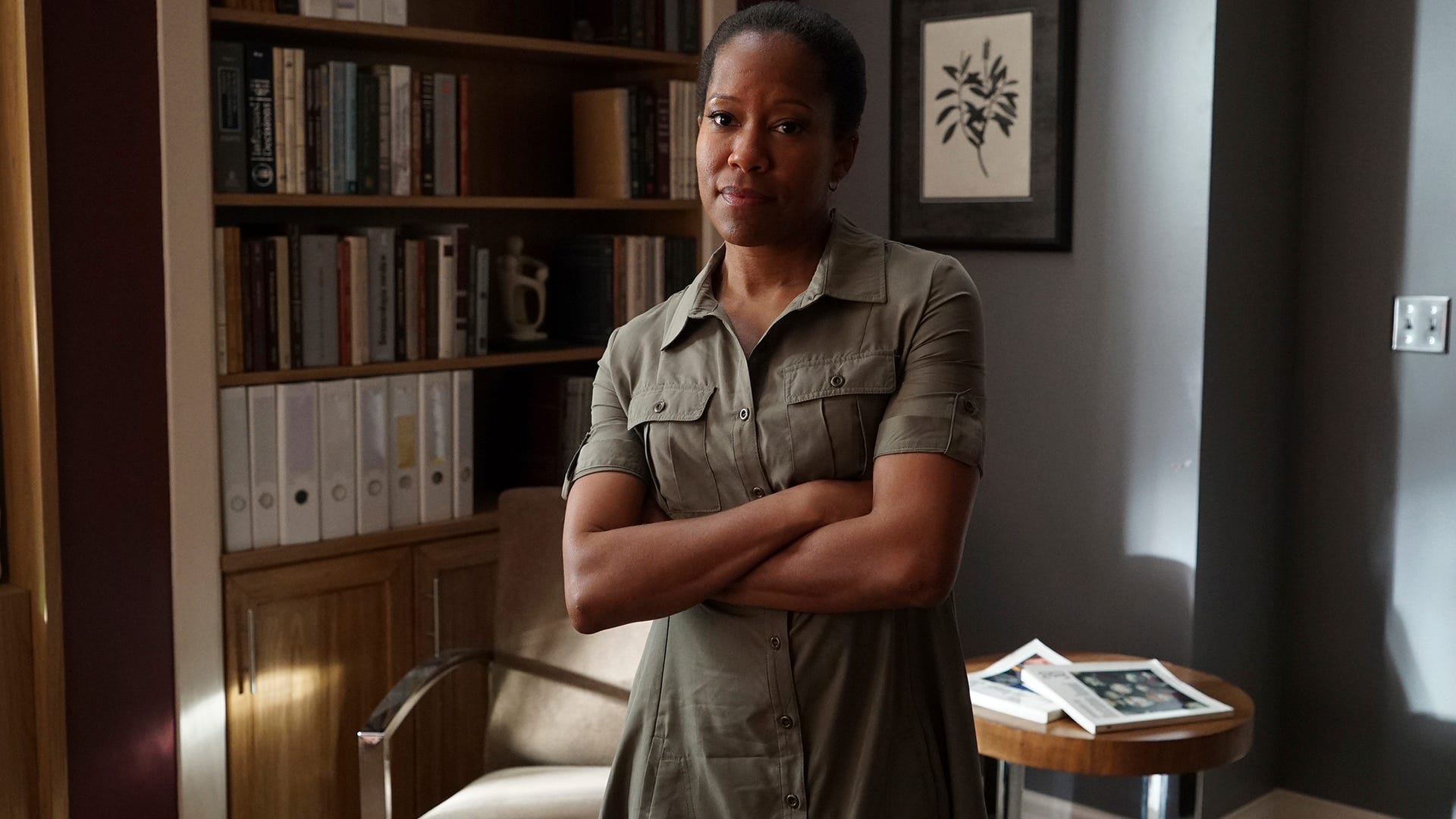Join or Sign In
Sign in to customize your TV listings
By joining TV Guide, you agree to our Terms of Use and acknowledge the data practices in our Privacy Policy.
American Crime Season Finale: The Story Behind Regina King's Gruesome Discovery
Has King earned another Emmy nom?
[Caution: turn away now if you haven't watched the Season 3 finale of American Crime and don't want to be spoiled.]
American Crime's excellent third (and possibly final) season ended Sunday by bringing closure to three of its most powerful, heartbreaking storylines. The gripping meditation on labor and the human cost of goods and services didn't end with a totally neat bow, but by the final courtroom scene, three of the weightiest narratives came full circle in what executive producer Michael J. McDonald told TVGuide.com was a deliberately hopeful moment. Said the producer, "We hope, as when the judge says, 'Justice for all,' that individuals can begin to pay the price for their abuse, and [address] the individual responsibility we each have within a society and economy that abuses others."
The happiest resolution (by American Crime standards anyway) was for long-suffering maid/captive Gabrielle (Mickaëlle X. Bizet), who was reunited with her son and got to witness her mistress Clair Coates (Lili Taylor) begin to face punishment for her ever-escalating abuse. Said McDonald, "Our goal was to demonstrate that people who've been abused can become abusive and can take the rights of others away without even fully being aware of it. I think it was important for us to demonstrate that ... you can't get away with it." Of course, Clair is only facing a preliminary hearing for the physical abuse; though there's no mention of her keeping Gabrielle in bondage. "My belief -- as we do on the show always, is allow for the audience to decide what happens -- is that she will be charged with not just physical abuse. She imprisoned her and basically human trafficked her."

Felicity Huffman, American Crime
Eric McCandless/ABCLess heartbreaking, but no less grueling, was Jeanette Hesby's (Felicity Huffman) return to her husband after financial strain forced her to end her self-imposed separation. And when her sister is taken into custody after failing a drug test, Jeanette has to plead to be taken back into the Hesby family along with her sister's children -- a humbling that also forces her to confront, again, the cruel exploitation happening on the farm that kicked off the season and prompted her to flee in the first place.
"She had no other choices," McDonald said. Because of North Carolina's divorce laws, "She couldn't get access to the money for a year, and it takes a year to get a divorce. That's what we wanted to demonstrate -- the desperation that people find themselves in through the horrible economic circumstances that many people in this country are living in. You get to see a woman who tried to do the right thing. But she couldn't pay her rent. She couldn't survive." Jeanette is an example how our social safety net is "full of holes," he said, leaving people -- especially women -- vulnerable to be in servitude to others.

Ana Mulvoy-Ten as Shae Reese, American Crime
Nicole Wilder, ABC
Of course, the ultimate example of that latter dilemma is Shae (Ana Mulvoy Ten), the underage sex worker who was killed in the cybersex house where she'd taken residence. Viewers spent an agonizingly long time wondering if her social worker Kimara Walters (Regina King) would figure out what happened to her until Kimara not only learns Shae's fate but views her decomposing body, which had been dumped in a river.
"It was a really extensively researched prosthetic," McDonald said. "It was so horrific to see. We wanted to do that partially for the shock value, but also to humanize her. All the other bodies we see had floated away or were face down and we didn't see their face. We got to say to the audience, 'Now you know these people. You have to look at her face and see how, as a society, we're complicit in disposing of humans.'" The prosthetic viewers saw was toned down from a more gruesome original version, he said.
Why American Crime is the bleakest show on TV

Regina King as Kimara Walters, American Crime
Eric McCandless, ABCIt's all heavy stuff, McDonald knows, although he does take issue with calling what was easily network TV's best drama "bleak." It makes him cringe a little. "For me," he said, "bleak means there's no hope, there's nothing." On set, he said, there are moments of joy and levity -- silly moments, bonding that happens after 14 hour days. But they knew they were assembled to tell important stories -- in this instance about how we, as consumers, carry on unaware of what the stuff we buy actually costs. "We have nice cars, we eat well," McDonald said. "All of that comes from other peoples labor. What does that mean to you as a member of society?"
